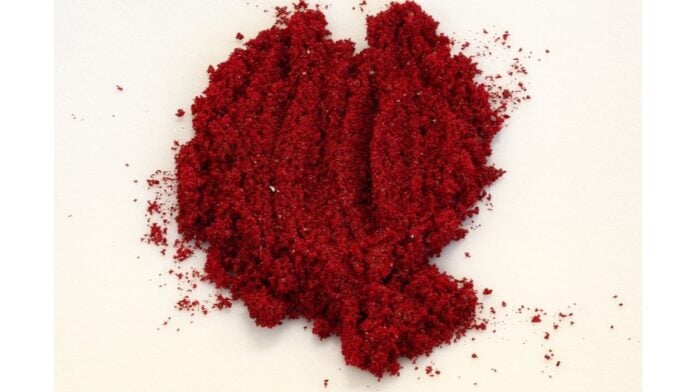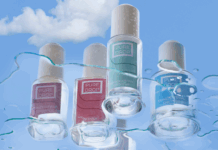No need for cochineal beetles to produce carmine! Debut biotech offers a biosynthetic alternative.
Californian biotech Debut has announced a significant scientific breakthrough in the bioproduction of carmine, which until now has been derived from the cochineal beetle. The fruit of several years' research, Debut's biosynthetic innovation is based on a new family of enzymes responsible for a key step, and on innovative solutions to overcome costly inputs during the bioproduction process.
"Carmine is one of the most difficult molecules to innovate. After a major investment and a lot of hard work, we are very proud to have discovered the essential missing step in the creation of renewable carmine, enabling us to go from sugar to this highly prized molecule, said Joshua Britton, founder and CEO of Debut. Many teams have tried to biofabricate carmine over the years, without success, due to the complexity and cost of the inputs. It's only thanks to our advanced biotechnology, Debut's proprietary Bio2Consumer platform and our differentiated biomanufacturing capabilities that this innovation has finally come to fruition."
To enable bioproduction from a low-cost renewable resource, Debut had to discover two enzymes and improve their performance. The company combined its patented microbial production systems with state-of-the-art cell-free biomanufacturing, overcoming industrial limitations to increase carmine bioproduction 100-fold compared with the best previous attempts.
Debut points out that carmine has a long history, dating back thousands of years to the Mayan and Aztec empires. According to Smithsonian Magazine, it takes around 70,000 cochineal beetles to produce a pound of crushed dried insect and a fifth of a pound of carminic acid. This age-old ingredient of animal origin is still used because, until recently, there was no environmentally-friendly alternative. According to Debut, synthetic alternatives have not produced colors as bright, stable and easy to formulate as carmine. What's more, they raise concerns. In January 2025, the FDA banned the use of synthetic Red No.3 dye because of its possible carcinogenic effect.
Debut's carminic acid is over 95 % pure, while the industry average is 30 % or less. The purity of cochineal-derived carminic acid is extremely low, typically 10 %. Bio-manufactured carmine also lacks a specific protein found in cochineal-derived carmine, which is known to cause skin irritation. In addition, bio-carmin has antioxidant and anti-inflammatory properties.
"Several colorants have been used to replace cochineal-derived carmine, but nothing beats the hue, potency, stability and brilliance of carmine in lipstick. Debut's bio-carmine is exactly the same ingredient found in nature, and we look forward to seeing it in beauty product formulations soon," said Joshua Britton.
Debut recently completed pilot-scale bioproduction, enabling the formulation of carminic acid for beauty applications. The company now wishes to target the food and beverage market in collaboration with a world-renowned partner. Active discussions are currently underway.
Photo © Mark Wall, Chief Scientific Officer, Debut








